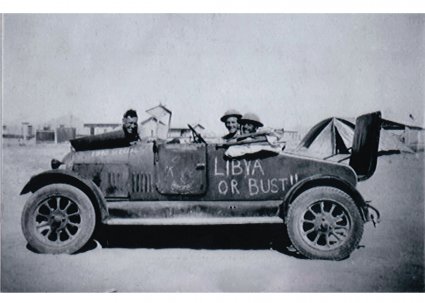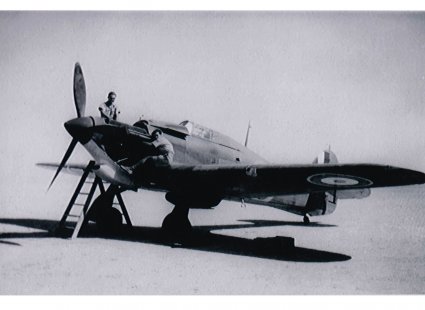Word Weavers - First Issue
Last Letter Home
by Celeste Medbery

evil backed into a dark corner
only to realize we are here
simply because we are here
Fighting machine gun bullets with the
breasts of men to claim cratered land
Oh, what I would give to walk on solid
ground instead of mud and duckboards
Tired of war dirt and rain drenched blood
Our rum rations no match for the heavy
stench of death and rotting sandbags
It barely challenges our recent memories
Graves in foreign fields were not on the
minds of those who flocked in the thousands
in hopes to flutter hearts, impress neighbours
and get a crack at the “Almighty Kaiser” himself.
I write with numb and brittle bones tonight
Will you remember me when the time comes
for telegrams, drawn blinds and the columns of
names that will fill the pages of your newspapers?
Image Credit: WW1propaganda.com
Pride.
By Samuel Blondahl
When tasked by the Free Press to write a brief story on Remembrance Day,
I was challenged. I have no direct connection to persons who have served save
one, a grandfather I barely remember. Ralph Dent was a Canadian aircraft
electrician serving with the British Royal Air Force and stationed in Libya and
Egypt during World War II. I do not know his motivations for joining the RAF or
the feelings he might have had regarding the war and his role in it, I can only
speculate.
Libya was a part of the Italian Empire during WWII, and was the Axis
staging ground for planned invasion of Egypt. The North African campaigns were
centered in this region, and this position was crucial to war efforts. Any
airfield would certainly have been an extremely dangerous place to work. I know
that my grandfather suffered shellshock from bombings, and I know that those
effects were not temporary.
As a modern Canadian, I see the world today as being very torn by social
and cultural differences. We are dealing with a completely new kind of war, and
a new understanding of the devastation of conflict. We have a clarity of vision
thanks to media and education that gives us perspective on political and
humanitarian issues. During WWII, most people would not have known anything
about the Nazi camps or the horrors being inflicted upon the innocent. For him,
I speculate that joining the RAF must have been about defending England, the
land of his ancestors. The Dent family has a rich history in England; a Dent
was close to William the conqueror, and to this day lands given by him to my
family bear the name Dent. Our coat of arms even indicates that two knights
served in the War of the Roses for the Lancasters. It is not much of a stretch
to imagine that family pride was a part of my grandfathers reasoning.
As for his feelings on his role there, I have the accompanying photographs he took during his time there to lend me some flash of insight. One shows two men working on a fighter’s engine, pride in their work must have existed else this photograph would likely not have survived. The other photograph shows a man working on a service car engine while two helmeted soldiers sit in the backseat. They all bear smiles and the car bears the bold statement of “Libya or bust!” Pride in their goal must have been present. They intended to overthrow the Italian rule, and bring the region under Allied control.
And so I see in these brief moments great pride. In his friends, his
family, his history, his work, and his goals. For this, I am proud of him. For
such things, I am proud of all who serve and sacrifice. Our peaceful country
would not exist without such dedication, and but for such pride, I would not
live in a world where I do not know anyone well who has had to fight for it.
The world is not perfect. We as a people struggle still with human
rights and suffering. After World War II, a common slogan against genocide was “Never
again!” But such cruelty has happened again, and is happening still. Congo,
North Korea, the Middle East, we still fight wars, and we still fight for what
we believe in. We have not solved the underlying problems of our world, but we
understand them better now I think, we see them more clearly. We have the
experience of our elders and we have the resources of education that they made
possible for us. I believe that we will come to a time of peace through such
clarity. I think I can see now a point in the future when all humankind has
access to education and the benefits of human compassion. On the horizon is the
goal that all those who went before fought to achieve. I am proud of us for
coming this far, and I am proud of the world we are creating.
Remembrance is beautiful, but look forward also on this Remembrance Day.
Consider the possibilities of the future we can achieve. From a Canadian
perspective, war is fought to create peace. To end suffering and provide aid.
To create a free and educated society. I live with the benefits of such a
society, and I believe that someday we all will.
Be proud.


Love
By Kimberly VanderHorst
I
watch the Veterans march each Remembrance Day and feel a surge of pride. I see
how high their chins lift and how steady their gazes are. Despite the weight of
years and the memory of war’s grief lodged in their hearts, they live on, and
they remember.
They
also teach. They teach us that war isn’t just a story history has told us.
When I was
younger, I flinched away from the mere sight of our Veterans, and even more
from the thought of them. They made me feel uncomfortable, because their very
existence reminded me the world is sometimes a hard and hurting place. And the
scope of their lives, what they have done, what they have given, makes mine
feel small in comparison. I felt like they had given me a gift and I’d made
poor use of it.
I used to
feel uncomfortable and ashamed when I saw the Veterans march. But one year that
changed. I watched and felt more than just a strange mingling of pride and
discomfort. I felt a sudden sense of possessiveness as I realized I wasn’t
watching “the” Veterans march, I was watching “our” Veterans march.
I realized
that they are ours, and we are theirs. I realized that while war is hatred
given breath, service in war can be manifestation of love. And now, when I
watch our Veterans march each year,
the discomfort and shame are gone. Instead I feel love, and humility, and a
touch of awe that these amazing men and women gave so much so we could have so
much. I reexamine my life and think of ways I can shape it into something more,
something that honors the example our Veterans have set.
As a
mother, I have battles to fight, sacrifices to make, and love to show forth. As
a wife, I have a comrade in arms whom I would give my all and my everything
for. As a friend, I freely give my time, my patience, my compassion. As a
member of a community, I have talents to share, respect to give, and support to
offer.
Watching
our Veterans march helps me focus on becoming the sort of woman who can watch
without the slightest hint of shame. I want to meet their steady gazes and nod
in quiet acceptance of the gift they have given. I want to honor that gift by
continuing to shape my life with kindness, tolerance, and a desire to give
service whenever and however it is needed.
I can
think of no better way to honor the men and women who have served us, than to
serve each other in such a way that there can be no war among us.
 Magazine Posts
Magazine Posts Table of Contents
Table of Contents